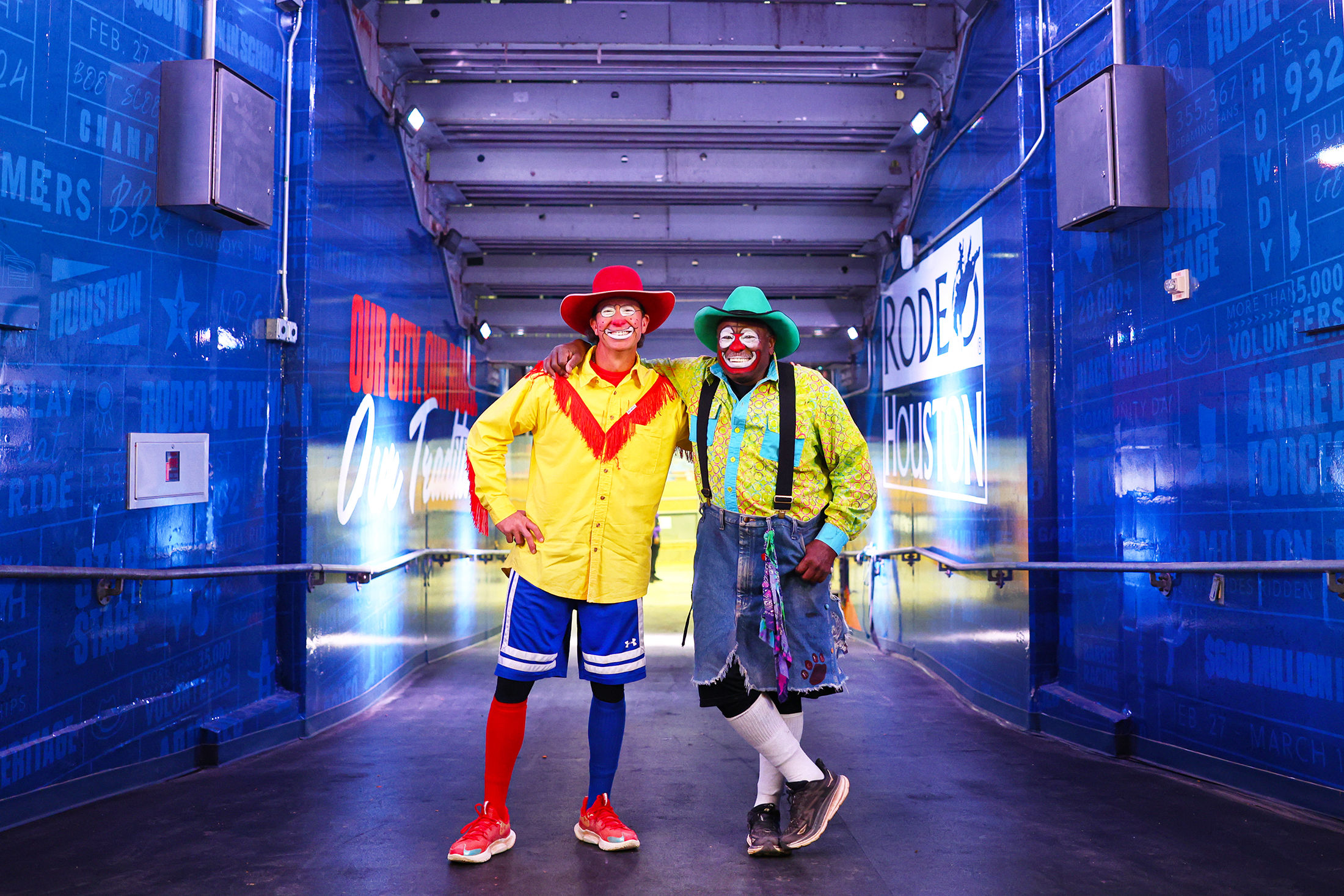A Houston Couple’s Decades-Long Fight Against Environmental Racism

Image: Michael Starghill
If you ask Juan and Ana Parras how they met, you’ll probably get two different versions—but both start in a South Texas courthouse. He walked in with a mustache, wearing a fedora and a wool coat, fresh off a union campaign in snowy Indiana. She was holding it down at the information desk in the rotunda.
“He looked like he was in the mafia,” Ana jokes.
They both carried union credentials when they crossed paths. He traveled to organize public employees in new places, and she was navigating county politics from within. But neither expected to merge their lives so thoroughly. That encounter—half workplace accident, half love story—planted the roots of what would grow into one of Houston’s most enduring climate movements: an organization now known as Texas Environmental Justice Advocacy Services (T.E.J.A.S.), which they founded in 2006.
They left Corpus Christi for Houston in 1992, bringing a blended family of five kids and a shared belief in organizing from the ground up. During that time, Ana and two other mothers formed the first Eastwood Park Advisory Council after noticing the park lacked basic infrastructure—no lighting, no walkway, no safe place for their kids. They leveraged their knowledge of city and county budgets to organize the community and demand improvements. That work, Ana later realized, was their first brush with environmental justice, even if they didn’t call it that at the time.
In 1993, the couple moved to Louisiana, where Juan accepted a position with the Louisiana Labor Neighbor Project. This role launched him into a tense labor dispute in St. James Parish, an area along the Mississippi River widely recognized for its high concentration of petrochemical plants, known as Cancer Alley. He worked alongside Black residents who had fought to keep their jobs during a prolonged lockout, all while fending off the latest threat: a massive PVC manufacturing facility that was poised to set up shop in an already overburdened community.
“The people where they build these facilities tend to be African American communities,” Juan says. “It’s racism. They go into a community they feel is the least resistant, offer them jobs, and make all kinds of promises because they’re Black and Latino. Then they build a facility, and very few get hired.”
Their time in Louisiana also exposed them to the stark intersections between racial justice, health disparities, and corporate influence. Ana took a job at a Louisiana Injured Workers Union, where she spent many days at the state capitol advocating for better workplace protections. Evenings found her at a shelter for domestic abuse survivors that had recently begun receiving a wave of Cuban refugees, many of whom spoke no English.
“I ended up getting a quick teaching on how to deal with domestic violence,” Ana says. “I think God puts us where we need to be at the time we need to be.”
By the time they returned to Houston around 1999, they were armed with years of community labor experience—and a sense of urgency. One day, driving along Old Galveston Road, the couple noticed a sign for a new high school being planned near their apartment. Behind it, oil and gas plants sprawled across the horizon.
“The billboard said ‘future home of a high school’ and it was real pretty and behind it were all these petrochemical facilities,” Ana says, pointing out the irony in the layout. “We had just come from fighting this type of stuff in Cancer Alley, and nobody was working on anything over here.”
With that, the roots for what would eventually become T.E.J.A.S. began to take hold. The couple launched a group called Unidas Contra Environmental Racism and got to work. They printed a letterhead, handed out flyers, and brought a bulky VHS camcorder to the construction site, documenting the scaffolding of a school they believed was being built in harm’s way.
César E. Chávez High School was eventually built. The project moved forward despite years of resistance, community meetings, and warnings about the site’s proximity to industrial emissions. Hired consultants and school board liaisons met with the opposition and insisted that naming the school after a respected labor icon (one Juan had met during his union days), and including environmental studies in the curriculum, would honor their concerns. To the Parras family, it was a cruel bait-and-switch.
“What got to us is that they said, ‘they can study the environment and when they find out what’s going on, they can walk out,’” Ana says. “They said that to us.”
So they kept pushing. When they were barred from entering the school grounds, they started offering what became known as toxic tours. Using their Jeep, they drove visitors through neighborhoods along the Houston Ship Channel, pointing out how close homes, schools, and parks sat next to refineries, tank farms, and chemical storage sites.
In time, their work developed a reputation for documentation and training the next generation of environmental advocates. Their son, Bryan Parras, joined the cause, bringing skills in video, media, and community storytelling. He later collaborated with national figures and became an environmental justice voice in his own right. By 2006, the couple formalized their efforts into a nonprofit, which became T.E.J.A.S.
The work hasn’t slowed down since. From pushing for proper air monitoring in neighborhoods near petrochemical corridors to fighting for meaningful language access in public notices, the organization has stayed rooted in the same mission: centering the communities most impacted by environmental racism.
In 2021, Juan was appointed to the White House Environmental Justice Advisory Council (WHEJAC) under President Joe Biden. He was one of the first 25 members nationwide. Their policy advocacy extended to risk management plans, carbon capture regulation, and environmental scorecards. The work felt meaningful—until, in early 2024, the council was dissolved with a surprise email. Ana compares the moment to “getting dumped on a Post-it note.”
Even so, they’re not stopping.
T.E.J.A.S. continues its community outreach, youth internships, and media training, preparing local students to tell their own environmental stories. They’re organizing up and down the state—from the Permian Basin to Brownsville—and pushing back against what they call “false solutions,” like unregulated carbon capture proposals and hydrogen infrastructure plans with little public accountability.
“We’re the oldest Latino-led environmental justice organization in Houston,” Ana says. “We’re hoping to pass on the torch because there’s not enough of us in the spaces we need to be. We need to own our power, or they’ll take it.”




